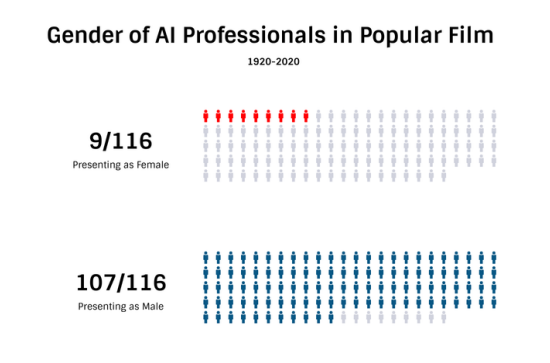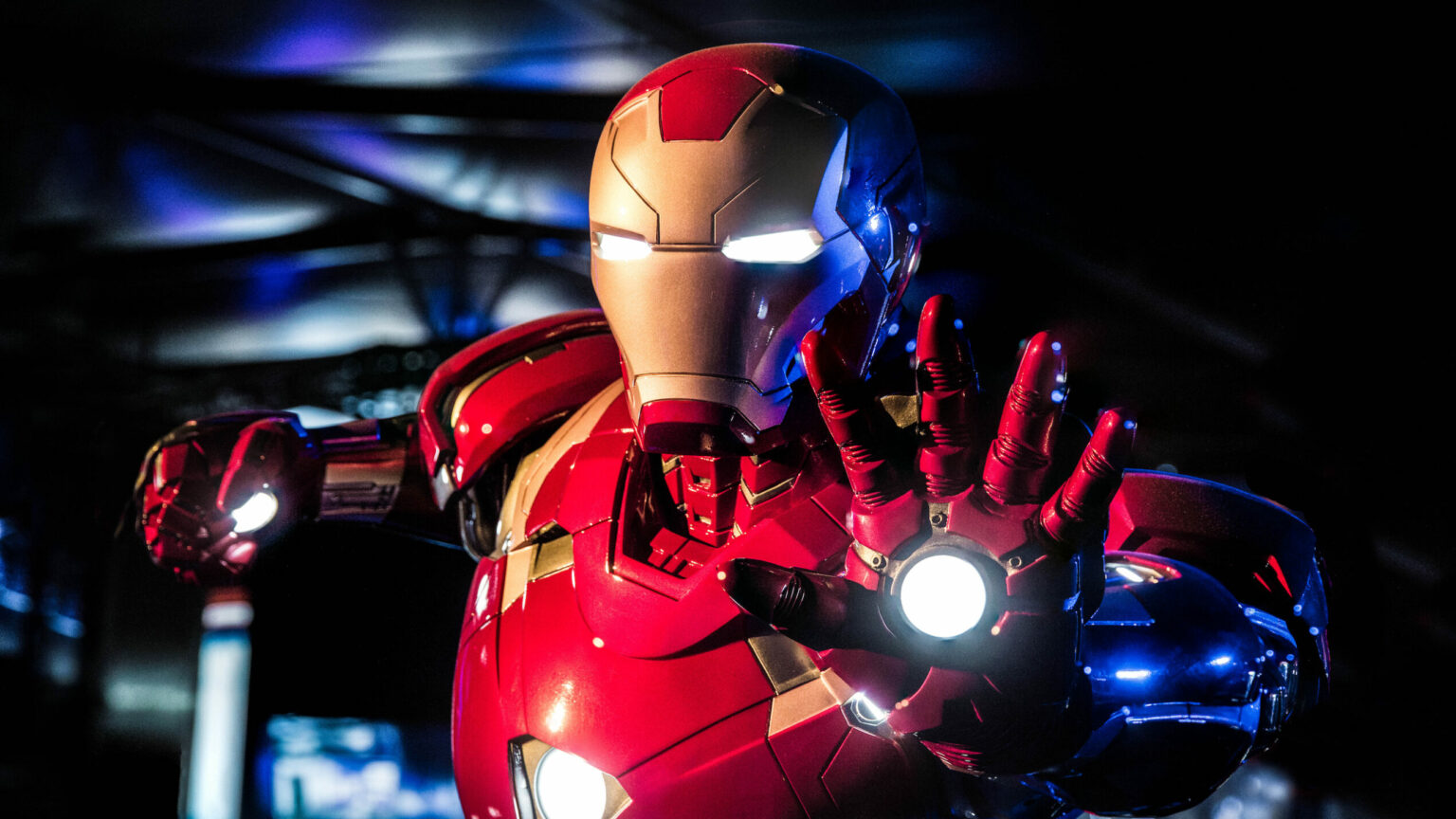Academics at the University of Cambridge have blamed sexist movies for low numbers of women entering the field of artificial intelligence (AI). Of 116 AI professionals depicted in ‘influential’ movies, only 9 ‘presented as female’ according to the study. In reality, 22% of AI professionals are female.

Movie AI creators are usually male
A recent report from the University of Cambridge has criticized movies including Iron Man and Ex Machina because the genius creator at the heart of the movie is male.
The report, “Who makes AI? Gender and portrayals of AI scientists in the popular film 1920-2020” blame the portrayal of AI geniuses as men for entrenching systematic gender equality.
The researchers write that a “lack of prominent female AI researcher role models in mainstream media impacts negatively on girls’ and young women’s perceptions of the field.”
According to the study, this gender imbalance is important because men who work in these fields create products that primarily benefit men. If true, breakthrough products such as ChatGPT, MidJourney, Claude, and Bard may entrench patriarchal oppression.
“Given that male engineers have repeatedly been shown to engineer products that are most suitable for and adapted to male users, employing more women is essential for addressing the encoding of bias and pejorative stereotypes into AI technologies,” says the authors.
The idea that film and media portrayals shape women’s job choices is nothing new. Although it predates it, that line of argument was reinforced in Jennifer Siebel Newsom’s 2011 movie Miss Representation, in which Marian Wright Edelman, Founder and President of the Children’s Defense Fund, says “You can’t be what you can’t see.”
The quote is now a popular aphorism in some sections of feminist discourse. The basic notion, which may seem patronizing to some, is that women can only accomplish tasks or succeed in fields that they first observe other women flourishing in – even if those women are only the imaginary creations of cinema and screen.
It is not the only contributory factor to women’s perceived lack of interest in the field, however. Outside of films and media, the report complains that the hypermasculinity of ‘brogrammer culture’ discourages women from following their latent AI dreams.
Cautionary tales
The report states that “not a single influential AI film in history has been directed solely by a cisgender woman.”
The cisgender distinction is important, as the authors of the report had trouble categorizing the work of The Wachowskis, who directed The Matrix and started their careers as men but have since transitioned.
In the end, the report’s authors decided to count The Wachowskis as how they “presented” at the time of directing each film. By that standard, even the post-Matrix Jupiter Ascending – by which time only Lana Wachowski had outed herself as female – did not satisfy their female director stipulation, nor did Captain Marvel which was directed by Anna Boden with help from Ryan Fleck.
While movies about AI may not be directed by women, many stories about AI including Ex Machina, The Matrix, and Westworld are all based on the same template of humanity creating something that later turns upon them.
The modern template for all of these stories is of course Frankenstein, which was written by female author Mary Shelley. As with the story of Dr. Frankenstein, the point of these movies is not to suggest that the men behind such creations are brilliant; they are instead cautionary tales. The creators of these modern monsters are not something to aspire to, yet men dominate the AI sector.
As Doctor Ian Malcolm, played by Jeff Goldblum in the Jurassic Park series, states: “Your scientists were so preoccupied with whether they could, they didn’t stop to think if they should.”
A glimmer of hope?
While AI creators are overwhelmingly presented as male, there are perhaps some reasons for hope in changing perceptions of the industry.
According to the study, the earliest movie to feature a female AI creator is the original Austin Powers from 1997. In that film, the brilliant and highly-capable Frau Farbissina – who never allows her voice to be drowned out by sexist male colleagues – builds a trio of “fembots” armed with machine guns for nipples, suggesting there is absolutely nothing women can’t accomplish when they set their minds to it.
In the more recent Marvel movie Wakanda Forever, Riri Williams aka Ironheart is presented as the successor to Tony Stark’s Iron Man. Ironheart, a young woman of color, reinvents the wheel by building her own suit of mechanized armor after the death of Stark.
At just 19 years of age, the character of Williams exceeds Stark in every conceivable way, except, as yet, in popularity with general audiences. Still, these brilliant female fictional characters may provide a reason for Cambridge academics – and women considering a career in AI – to be optimistic.









 and then
and then